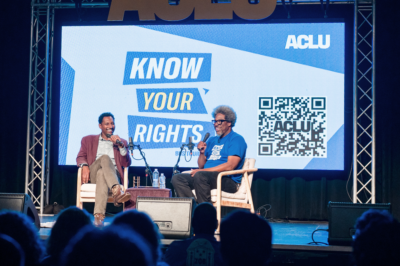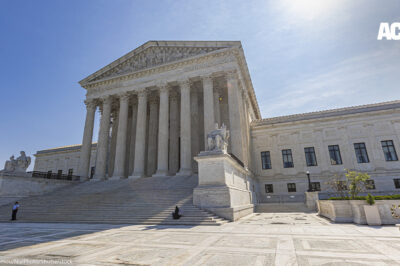Ninth Circuit Will Re-Hear Mandatory DNA Collection at Arrest Lawsuit
FOR IMMEDIATE RELEASE
CONTACT: (212) 549-2666; media@aclu.org
SAN FRANCISCO—Today the Ninth Circuit Court of Appeals will rehear the ACLU of Northern California's challenge to a California law that mandates that DNA is collected from anyone arrested on suspicion of a felony, whether or not they are ever charged or convicted. Oral argument is scheduled for 10am in Courtroom 1 at the James R. Browning US Courthouse in San Francisco.
The federal class-action lawsuit, Haskell v. Harris, was filed on behalf of Lily Haskell and three other plaintiffs who were forced to turn over a cheek swab of their genetic blueprint to police. Lily was arrested after joining a peace rally in San Francisco. Although she was released without any charges, her DNA is now stored in national databank.
“I was told that if I didn’t give a DNA sample that I might spend two extra nights in jail. I felt strong-armed. It’s not right to take people’s DNA and put it in a government databank,” said plaintiff Lily Haskell.
“DNA collection at arrest doesn’t help solve crimes and it’s a huge invasion of privacy,” said Michael Risher, staff attorney for the ACLU-NC. “The Constitution protects against this kind of privacy invasion. That’s why we have a 4th Amendment.”
The government’s own data presented in court filings shows than taking DNA from everyone who is arrested for a felony, rather than just from people who are convicted of crimes, does not help solve crimes. In part, this is because California’s DNA collection law is not limited to violent crimes.
Under this law people must have DNA taken even if they are arrested after writing a bad check, defending themselves during an attack, or if they are wrongfully arrested, as in the case of Lily Haskell and the other three plaintiffs.
Taking DNA from innocent people causes further backlogs in DNA databanks. The resources spent collecting DNA samples from innocent people would better devoted to processing crime-scene samples to help solve violent and serious crimes like rape, assault and murder. Since this law took effect, DNA has been taken and stored from more than 80,000 Californians per year who have never been convicted of a crime.
The ACLU-NC’s court filings have noted that DNA is not the same as a fingerprint. AScientific American editorial about the also lawsuit makes this point, “DNA is not just a technological progression from fingerprinting. It is qualitatively different. As such, it needs to be treated as more than a mere formality of a police booking procedure.”
“DNA is more than patterns on our fingers. It’s our genetic blueprint,” Risher said.
The ACLU also points to the huge racial impact of this law, due to the realities of racial profiling and heavy police presence in neighborhoods that are predominantly inhabited by people of color.
The mandatory DNA collection policy is a result of Proposition 69, which was enacted by California voters in 2004 and went into effect on January 1, 2009.
This suit is the only civil suit in the country challenging a trend toward invasive DNA collection of people who haven't been convicted of crime. The lawsuit was brought by the ACLU of Northern California with pro bono assistance from Paul, Hastings, Janofsky & Walker LLP.




